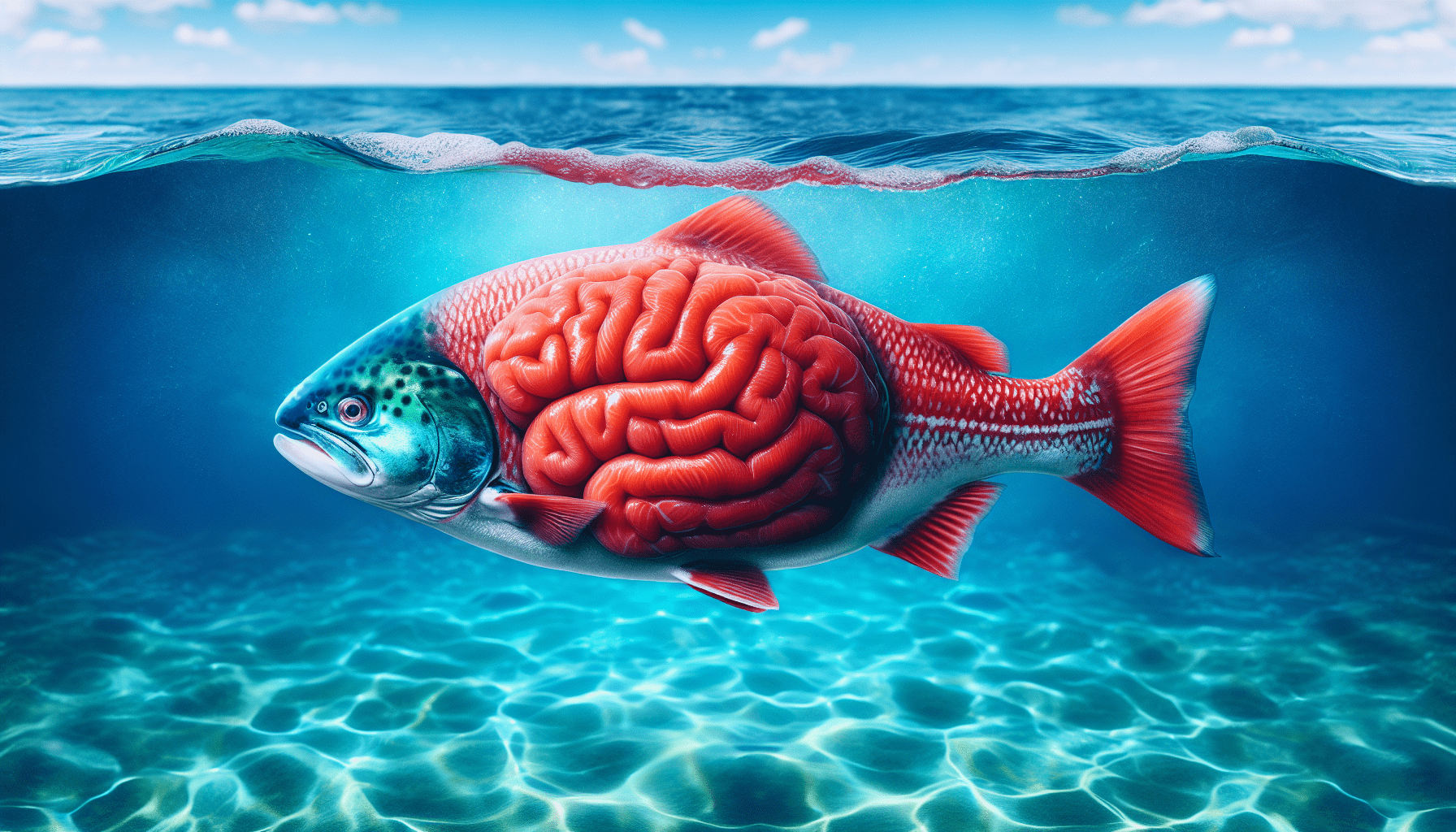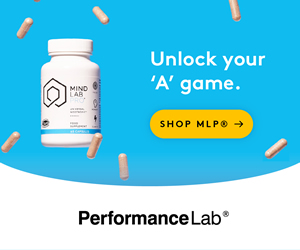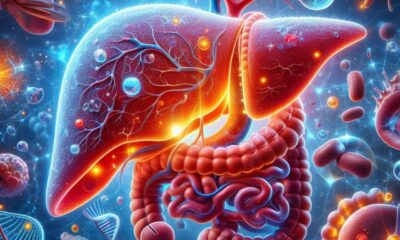Health & Wellness
Exploring the Impact of Astaxanthin on Brain Health
Discover how astaxanthin, a potent antioxidant from marine life, enhances brain health, improves memory, and offers protection against neurodegenerative diseases.
Have you ever wondered how certain nutrients can have a profound impact on your brain health? One such potent nutrient that has been gaining attention in recent years is astaxanthin. This remarkable compound, renowned for its strong antioxidant properties, may play a crucial role in maintaining and enhancing brain function. But what exactly does astaxanthin do to the brain? Let’s embark on a journey to uncover the wonders of this fascinating substance and its potential benefits for your cognitive health.
What is Astaxanthin?
Astaxanthin is a naturally occurring carotenoid, a type of pigment found in various marine life such as salmon, krill, and microalgae. Unlike other carotenoids, astaxanthin exhibits a unique molecular structure, making it incredibly powerful in its antioxidant capabilities. It is often referred to as the “king of carotenoids” due to its superior ability to neutralize free radicals compared to other similar compounds.
Sources of Astaxanthin
You can find astaxanthin in various dietary sources. Here’s a quick look at where it comes from:
| Source | Description |
|---|---|
| Marine Algae | The most potent natural source, particularly Haematococcus pluvialis. |
| Seafood | Common in salmon, trout, shrimp, and krill, contributing to their reddish-pink hue. |
| Supplements | Available in both synthetic and natural forms, often derived from microalgae. |
When considering intake, many prefer natural sources due to potential differences in bioavailability and efficacy.
The Power of Antioxidants
To fully appreciate the impact of astaxanthin on brain health, you need to understand the role of antioxidants. Your brain is particularly susceptible to oxidative stress due to its high oxygen consumption and abundance of polyunsaturated fatty acids. Antioxidants protect your brain cells by neutralizing harmful free radicals that can lead to cellular damage.
How Astaxanthin Stands Out
Astaxanthin is not just any antioxidant. Research shows that it is:
- 65 times more powerful than vitamin C
- 54 times stronger than beta-carotene
- 14 times more potent than vitamin E
These exceptional properties enable astaxanthin to cross the blood-brain barrier, providing direct protection to brain cells.
Mechanisms of Action
Astaxanthin’s impact on brain health is mediated through several mechanisms. Let’s break down how it works:
Anti-Inflammatory Effects
Chronic inflammation in the brain can lead to various neurodegenerative diseases, including Alzheimer’s and Parkinson’s. Astaxanthin has anti-inflammatory properties that:
- Reduce the production of pro-inflammatory cytokines
- Inhibit the activation of inflammatory pathways
- Protect neurons from inflammatory damage
Enhancement of Mitochondrial Function
Mitochondria are the powerhouses of your brain cells. Astaxanthin aids in:
- Improving mitochondrial efficiency and energy production
- Reducing mitochondrial oxidative stress
- Enhancing overall cellular health
Neuroprotection
Astaxanthin protects brain cells through various avenues:
- Direct Antioxidant Action: Shields neurons from oxidative damage.
- Modulation of Apoptosis: Prevents programmed cell death in neurons.
- Reduction of Excitotoxicity: Lowers harmful stimulation that can lead to cell damage.

Cognitive Benefits of Astaxanthin
Now that you understand the underlying mechanisms, let’s discuss the tangible cognitive benefits that astaxanthin offers.
Improved Memory and Learning
Research indicates that astaxanthin enhances memory and learning capabilities. In various studies, subjects who supplemented with astaxanthin showed significant improvements in tasks requiring memory retention and complex learning.
Enhanced Focus and Attention
Astaxanthin may help improve your focus and attention span by reducing mental fatigue and enhancing cognitive function. This can be particularly beneficial if you are involved in tasks that require sustained concentration.
Protection Against Neurodegenerative Diseases
The preventive aspects of astaxanthin cannot be overlooked. Its antioxidant and anti-inflammatory properties provide a protective shield, lowering the risk of diseases such as Alzheimer’s and Parkinson’s.
Clinical Studies and Evidence
While the benefits of astaxanthin are promising, it’s essential to consider the evidence provided by clinical studies to fully substantiate these claims.
Animal Studies
Research on rodents has consistently shown that astaxanthin improves cognitive function and reduces markers of oxidative stress and inflammation in the brain.
Human Trials
Several human trials have also supported the cognitive benefits of astaxanthin. For instance:
| Study | Participants | Results |
|---|---|---|
| Memory and Cognitive Function | Elderly adults | Significant improvement in memory tests after 12 weeks of supplementation. |
| Visual Acuity and Brain Function | College students | Enhanced visual acuity and reduced mental fatigue over a period of 8 weeks. |
| Attention and Reaction Time | Middle-aged adults | Faster reaction times and improved attention spans with consistent intake. |
These studies indicate that astaxanthin can offer tangible cognitive benefits across various age groups.
Dosage and Safety
Understanding the right dosage and safety profile of astaxanthin is crucial for maximizing its benefits while minimizing any potential risks.
Recommended Dosage
The optimal dosage can vary based on factors such as age, health status, and specific cognitive needs. However, general recommendations are:
- Daily Intake: 4 to 12 mg per day
- Form: Preferably in a lipid-based formulation for better absorption
Safety Profile
Astaxanthin is generally considered safe with no significant side effects reported in most clinical trials. However, always consult with a healthcare provider before starting any new supplement regimen.
Practical Tips for Incorporating Astaxanthin
Integrating astaxanthin into your daily routine can be simple and effective. Here are some practical tips to help you get started:
Dietary Sources
Incorporate foods rich in astaxanthin into your diet:
- Salmon or Trout: Include these in your meals a few times a week.
- Shellfish: Consider adding shrimp or crab to your seafood choices.
Supplements
If dietary sources are insufficient, consider high-quality astaxanthin supplements. Look for those derived from natural sources such as Haematococcus pluvialis algae for the best results.
Frequently Asked Questions
Let’s address some common questions that may arise when considering astaxanthin for brain health.
Can I take astaxanthin with other supplements?
Yes, astaxanthin can generally be taken with other supplements. However, always check for any potential interactions and consult with your healthcare provider.
How long does it take to see the benefits of astaxanthin?
Results can vary, but many studies suggest that noticeable cognitive benefits may start to appear within 4 to 12 weeks of consistent supplementation.
Are there any side effects?
Astaxanthin is generally well-tolerated with minimal side effects. Some individuals might experience minor digestive issues, which can usually be mitigated by taking the supplement with food.
Conclusion
Your brain is constantly working, processing information, and managing every aspect of your life. Maintaining brain health is crucial for overall well-being, and astaxanthin stands out as a powerful ally in this regard. From its robust antioxidant properties to its ability to enhance cognitive function and protect against neurodegenerative diseases, astaxanthin offers a wealth of potential benefits for your brain.
As always, it’s essential to make informed decisions and consult with a healthcare provider when considering new supplements. By integrating astaxanthin into your wellness routine, you may provide your brain with the support it needs to perform at its best, now and in the future.
















